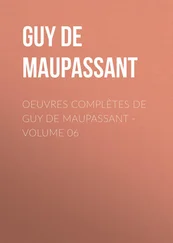Somehow Daniel pulled himself together and returned to the kitchen. What he now saw didn’t strike him as funny any longer, just a sorry sight, vaguely disgusting, the white body bloated and sagging underneath a ridiculous hat. Before he could censor himself, Daniel heard himself saying, “Jesus, Alec, if you want to wash all over, whyn’t you do it like normal people and take a bath?”
And Alec said stonily, “Because I’m so goddamn old and so goddamn stiff and so goddamn fat I can hardly jack myself up out of a tub anymore. That’s why.”
Although there were sometimes awkward moments such as that, by and large the two of them got along well enough in the touchy, complaining, grudging fashion usually associated with long-married couples. Lacking any other companions their peculiar partnership had become the centre of their lives. Alec had summarily ordered his old friends, Huff and colleagues, to keep clear of his property following the uproar at Christmas and they had sulkily done so, even when they learned Vera had moved out. Also, Alec’s relations with Mr. Stutz were not quite as they once had been. The old man held himself very cool and aloof in Stutz’s presence for fear that a heated word might betray how hurt he had been by his friend and employee going behind his back to lend money to his daughter. Now all Alec’s natural mischievousness, his desire to get sober Stutz’s goat, were suppressed in case his teasing might be interpreted as bitterness or injured pride. He bit his tongue and didn’t say, “What’s this Stutz? You set on a promotion? Interested in moving from general manager to son-in-law? Interested in buying into the business?” No, following the opening of The Bluebird the two men treated each other with business-like rectitude. Nor did Mr. Stutz receive any more late-night phone calls from his employer.
Daniel was similarly isolated. Kids might say hello to him on the street but they never bothered to stop and talk. Dancing lessons had not saved him from loneliness; no girl had looked at him and imagined Montgomery Clift. On the other hand, he knew that whatever qualities he owned were not ones to endear him to the boys. He was hopeless at sports, no joker, and too proud to play Tonto to anybody’s Lone Ranger.
So that summer Daniel and Alec had their routines and each other. An hour each afternoon was spent pottering in the crazy garden which had sprouted chaotically, rows sown half with one vegetable, half with another, rows sown twice with different vegetables, a thicket of dill bristling in the potato patch because the old man had accidentally spilled a packet of seed there in the spring. Alec wouldn’t let Daniel pull it up. He said it never hurt to be reminded of your mistakes. Daniel didn’t argue. The garden was his grandfather’s business. He directed the boy in weeding, thinning, and hilling, while reserving watering rights for himself. He was never happier than when he plodded about the garden in black, high-topped rubber boots, a hose snaking after him as he sprayed the sweet peas entwined in the chicken-wire fence, doused the bald green heads of the cabbages, shook a shower over the potatoes, or sprinkled the marigolds.
Growth that summer was abundant, lush. There was really no reason to water at all except that it gave the old man pleasure. Rain was plentiful, unlike the previous year when it had been necessary to haul tanks of water from the farm. Spectacular storms often broke late on hot afternoons, black and purple thunderheads swelling on the horizon like bruises, lightning breaking open the sky in jagged, bluish-yellow cracks that spilled down a blur of wild rain and wind. Then stillness, the garden awash in water, the rain barrels foaming and swirling under the drain spouts.
The storms frequently interfered with television signals and the reception of the movie matinee. While the lightning clashed apocalyptically overhead there were arguments about unplugging the set.
“Yeah, if we unplug the set now I’ll never find out what happens. Just wait a minute. The movie’s almost over.”
“It’s over now. That goddamn aerial on the roof is no better than a lightning rod, it’ll suck the juice right out of the sky and down into the set. That’s an RCA there and I don’t want the sonofabitch fried. Unplug it.”
“What if the aerial gets hit while I’m unplugging the set? Who gets fried then?”
“If you’re worried, wear my rubber boots. Come on, quit stalling. Just unplug the sonofabitch.”
Staring intently at the screen, doggedly delaying. “You unplug it.”
“You want me to shut that set down for the Olympics? That what you want?”
“No.”
“Then unplug it. Now.”
Daniel slouched sullenly to the TV. “Jesus.”
It was a potent threat. For weeks Daniel had been anticipating the Games. Growing more and more excited as publicity and news coverage built, he was given to lecturing his grandfather, passing on with an air of sublime self-importance whatever information he had managed to glean from studies of Sport and Sports Illustrated in the magazine rack of the drugstore. It was a premeditated attempt to arouse interest in his grandfather so he wouldn’t balk at watching a bunch of foreigners competing in sports he didn’t understand and probably hadn’t even heard of. Perhaps it worked because when the Olympics finally began the old man proved to be a quick sell. He was easily as enthusiastic as his grandson, maybe more so.
For the duration of the Games their routine altered and their days rearranged themselves around the broadcast of Olympic reports. Alec greedily immersed himself in the spectacle, even insisting on watching events that Daniel had trouble considering sports at all: dressage, field hockey, European handball, race-walking, to name a few. The sorts of activities which communists excelled at, but which no self-respecting North American athlete would be caught dead doing. Daniel thought that any sport which required a man to wear tights wasn’t a sport at all and as for race-walking, that was a comedy routine.
To make matters worse, his grandfather liked to enliven their viewing by cheering for the Iron Curtain countries. Daniel knew what he was up to, but being a Russian-hater he couldn’t help getting hot under the collar when the East bloc won and was applauded by the old man. Just once he wanted to get under his skin the way his grandfather got under his. He tried. Rome was not the only scene of fierce Olympic competition. Daniel had something disparaging to say about every Soviet success.
“There goes another Ivan to get his medal for being best at some pukey sport played by about four people in the whole world. And of the other three who play the dumb sport, likely two of them are Russian anyway.”
“Magnificent athletes, the Russians,” said his grandfather.
“Whoever heard of this stuff? European handball , for chrissakes. That’s a game? And why do we have to play their sports and they don’t have to play ours? How come no baseball or football? I’d like to see how they’d do having to play a real game like baseball or football. Then we’d see.”
“Oh,” said his grandfather with maddening calmness, “give them a year or two of practice and they’d master that the way they’ve mastered everything else. Magnificent athletes, the Russians.”
They only struck a truce when it came to cheering for the Italians and Canadians; then they found themselves temporarily in the same camp. Both were downcast when Harry Jerome of Canada cramped in the semi-finals of the one hundred metres and had to hobble pitifully off the track. After that happened, despite his protestations of admiration for the Russians, the old man only really cared about the Italians. He liked the way Italians wore their hearts on their sleeves, without excuses, like kids, weeping at a loss, exulting in a victory. He even forgot his fellow-traveller pose in the welter-weight boxing final, cheering Giovanni Benvenuti’s win over the Russian Radonyak. When Berruti won the two hundred metres, stylishly insolent in sunglasses, Alec was delighted by the sight of the ecstatic Roman crowd lighting newspapers in the stands and waving them aloft to salute their hero. “Look at those crazy Italian buggers,” he said, shaking his head at the carnival, “having themselves a time like a bunch of kids.”
Читать дальше












